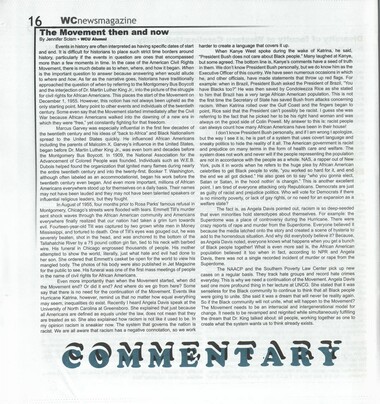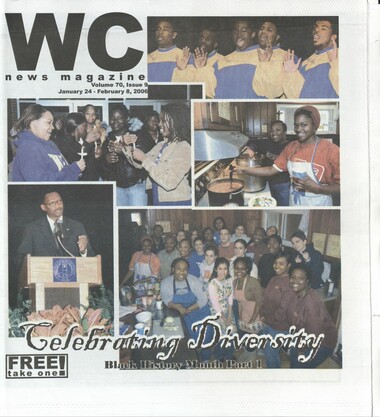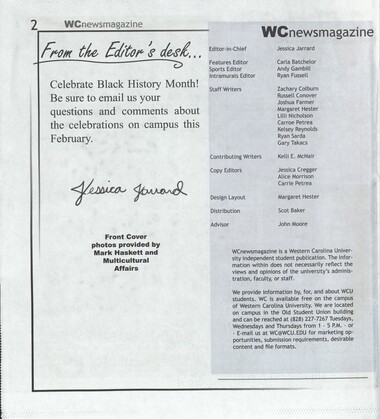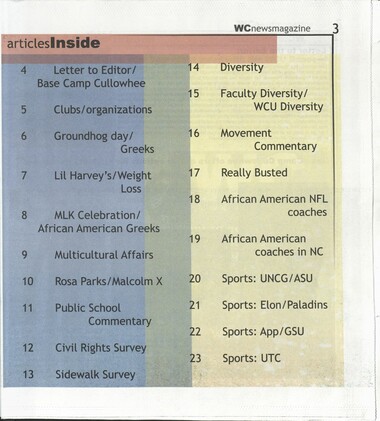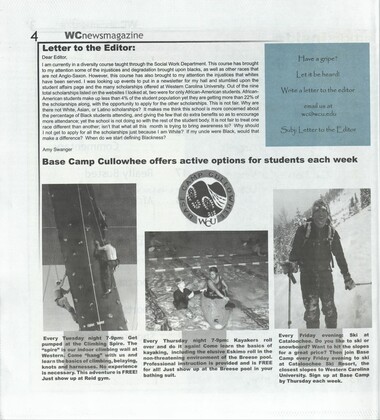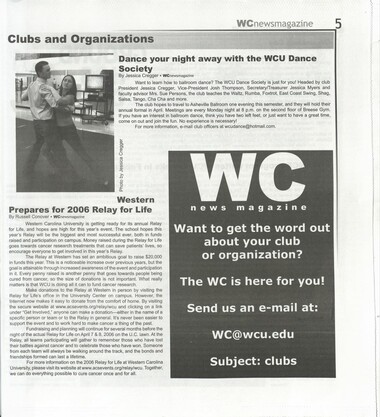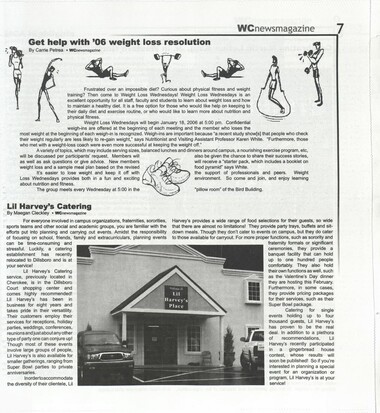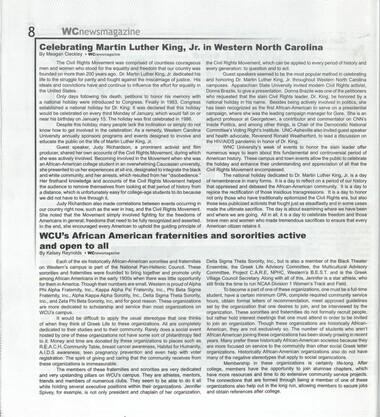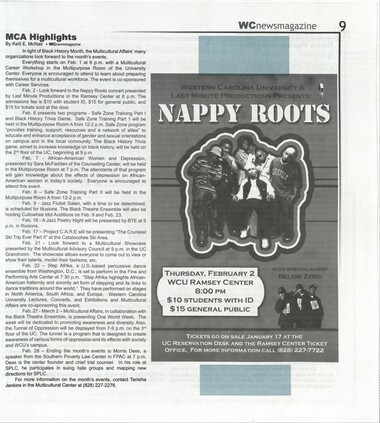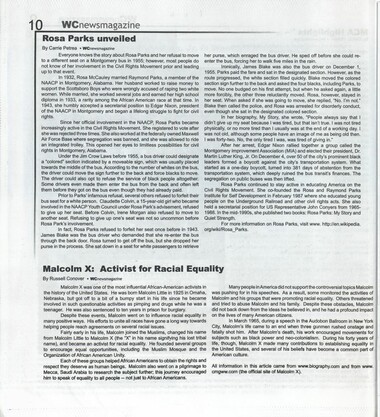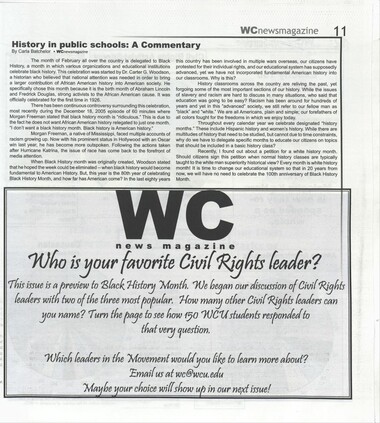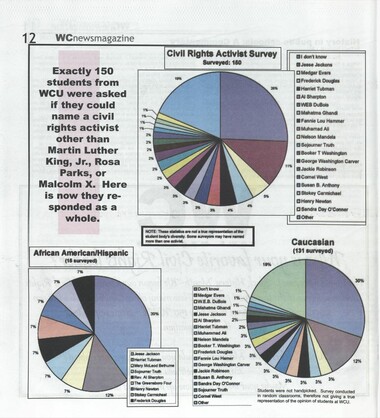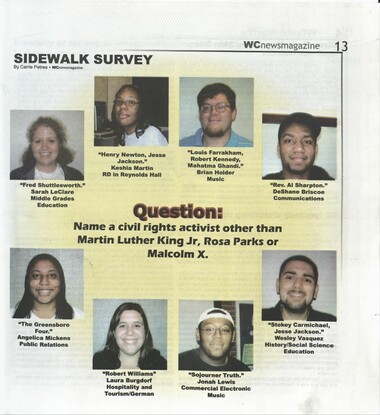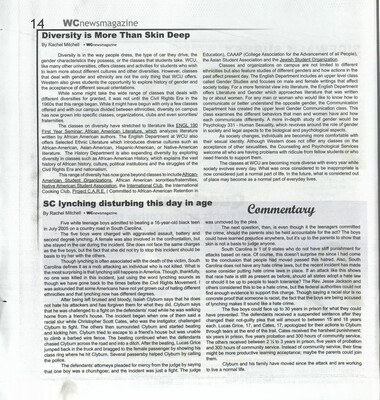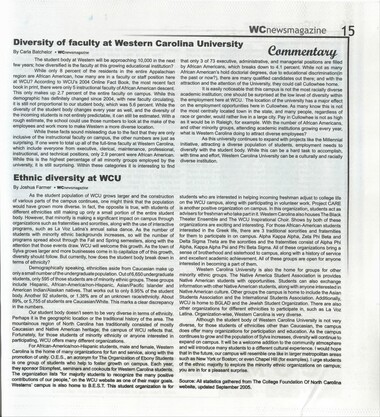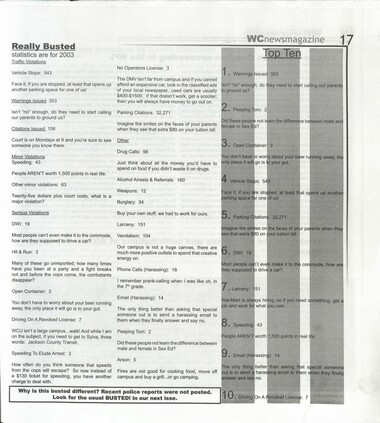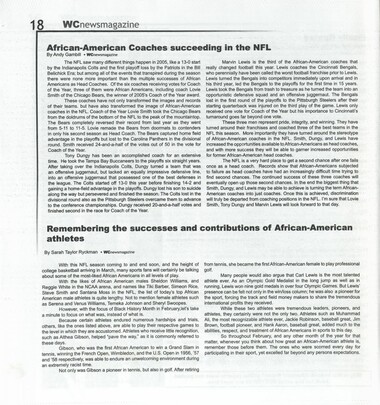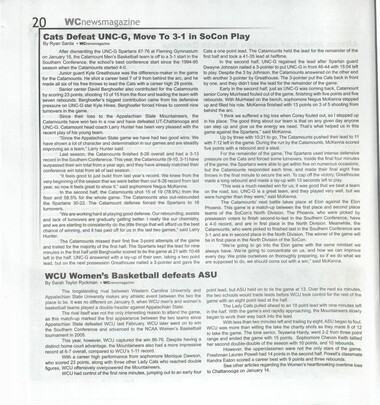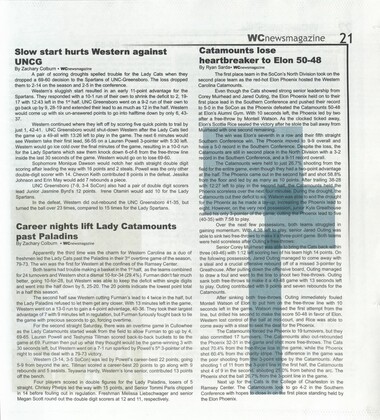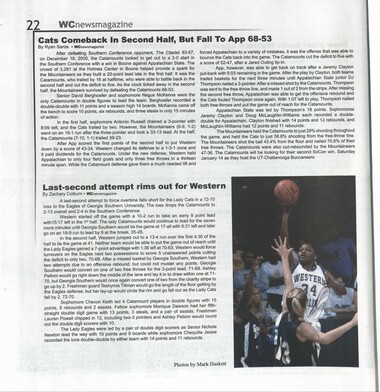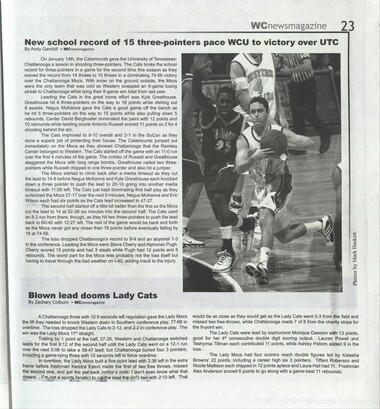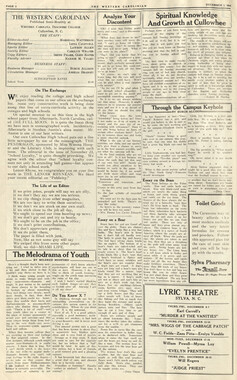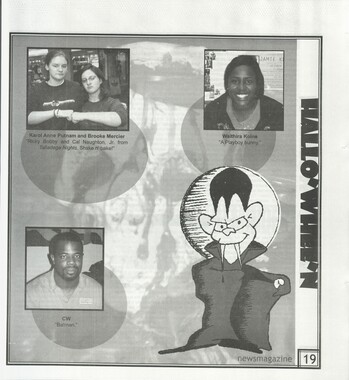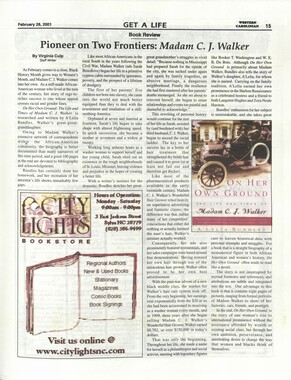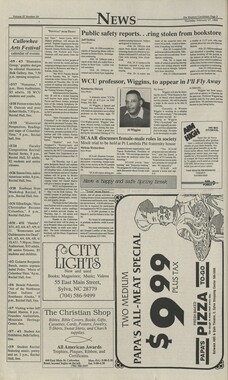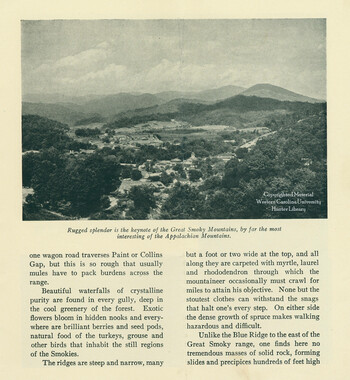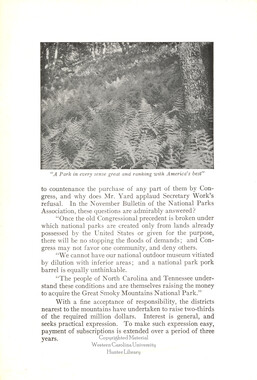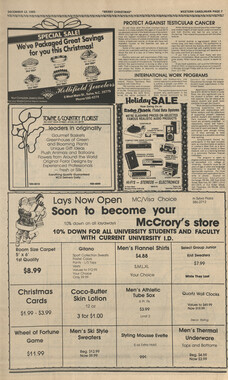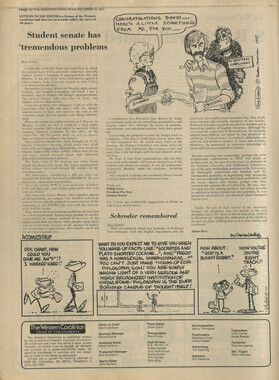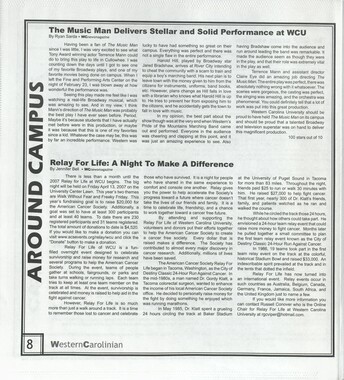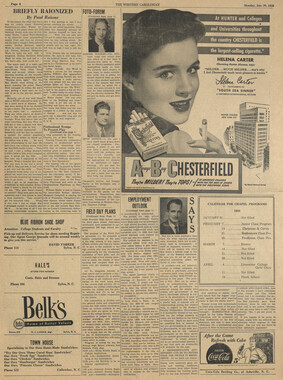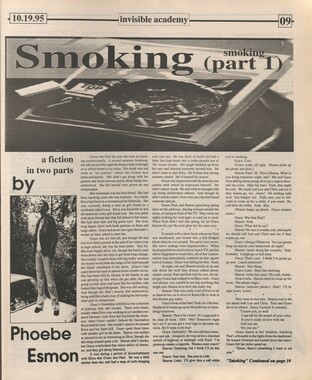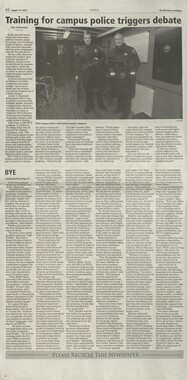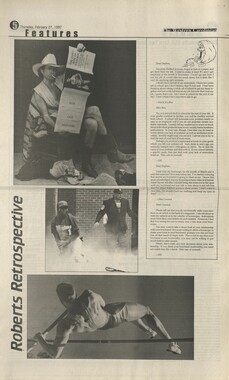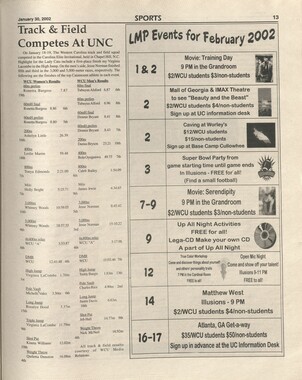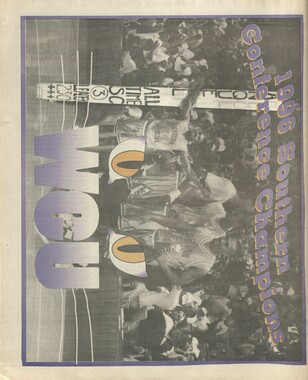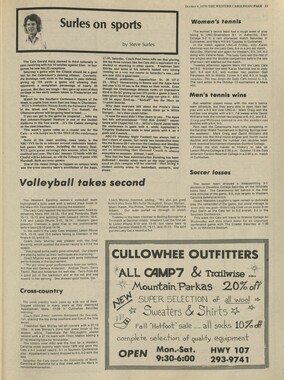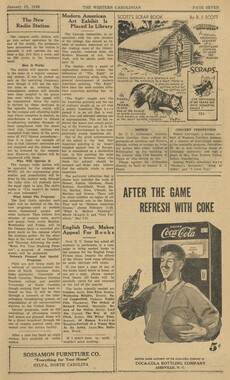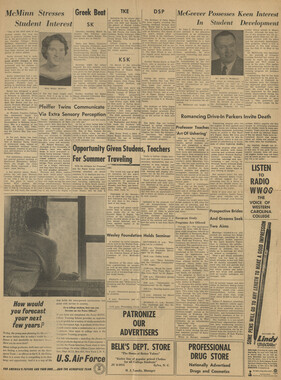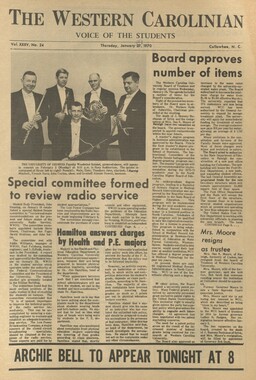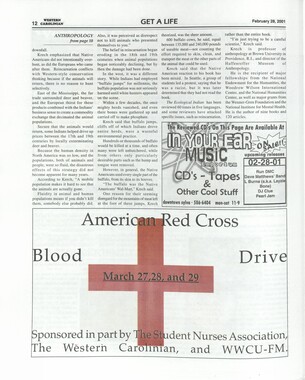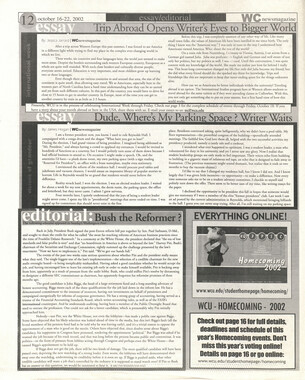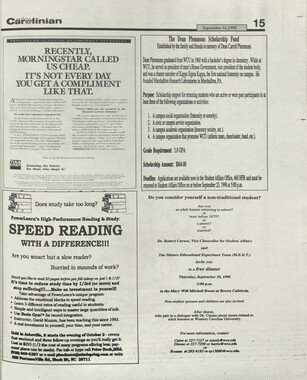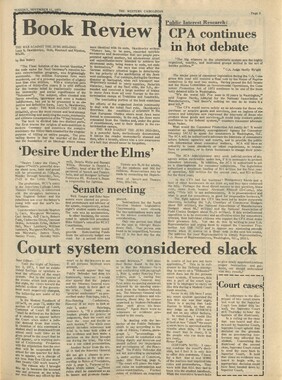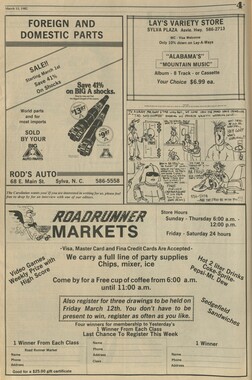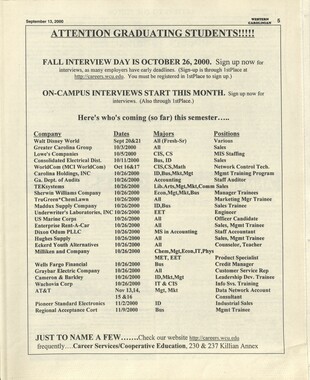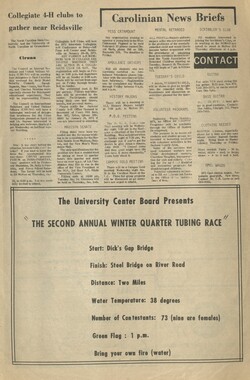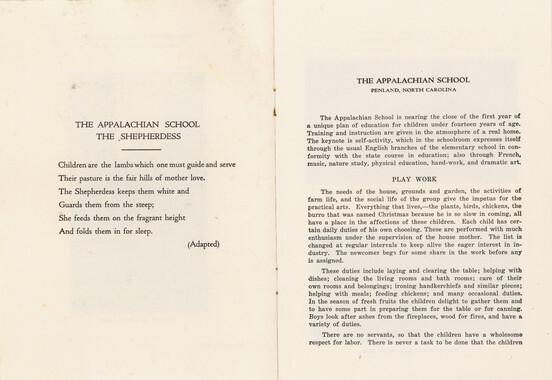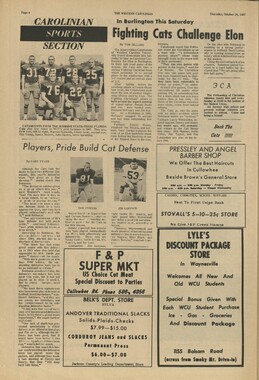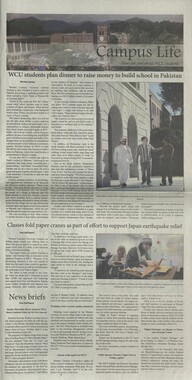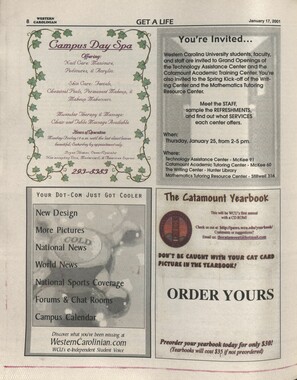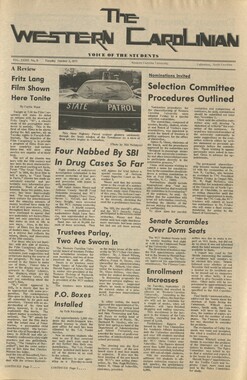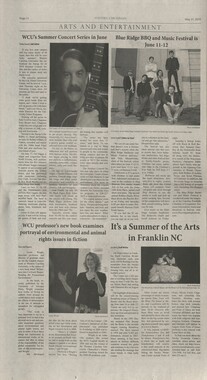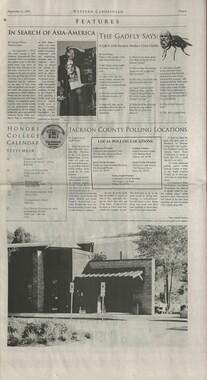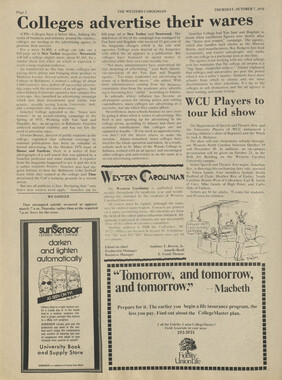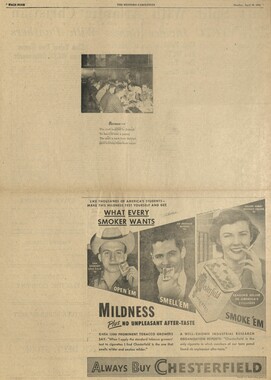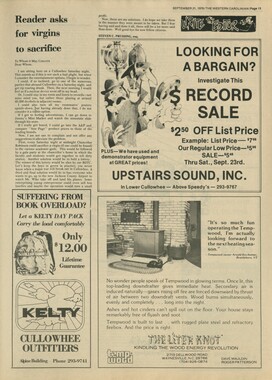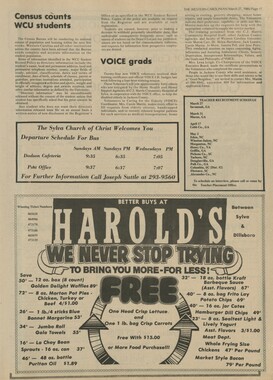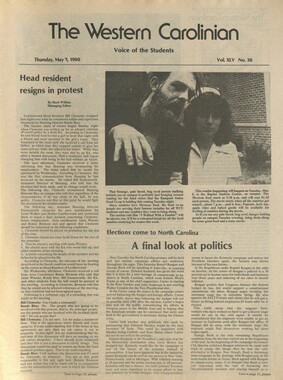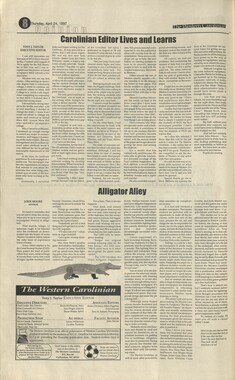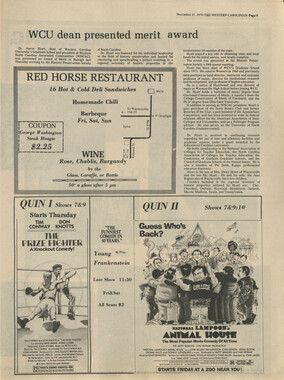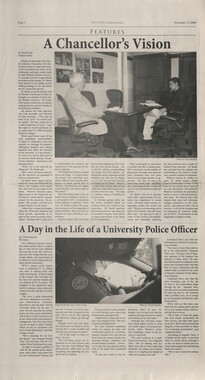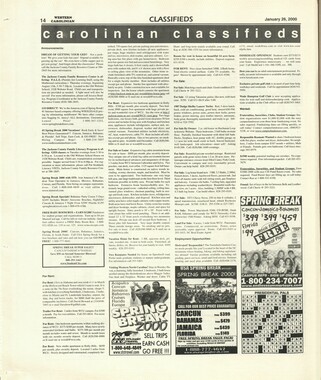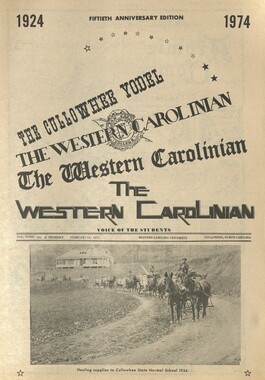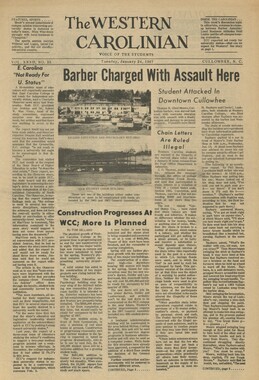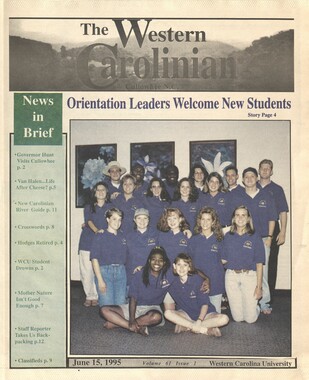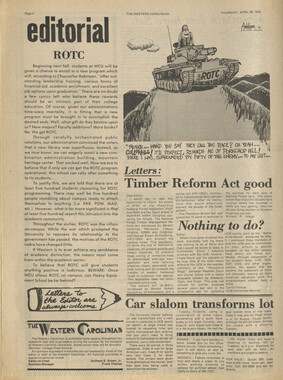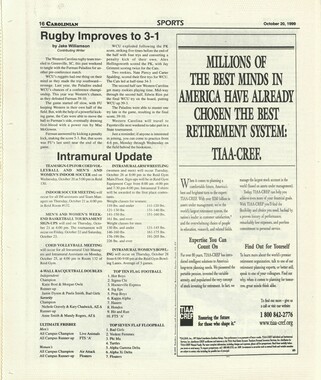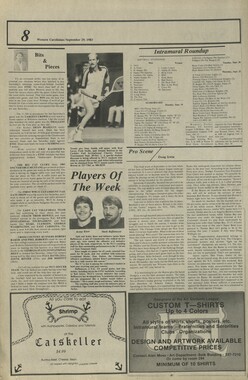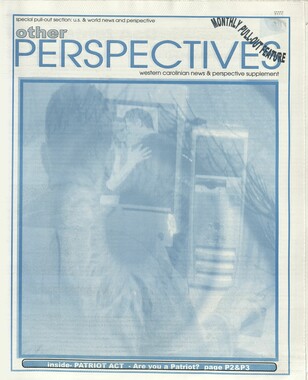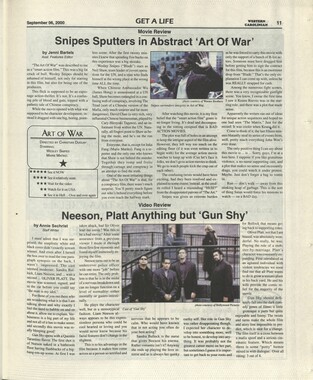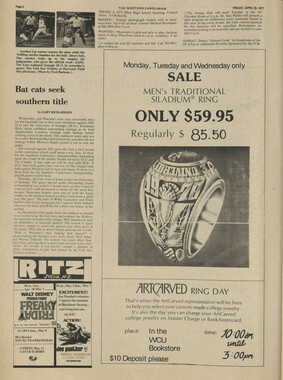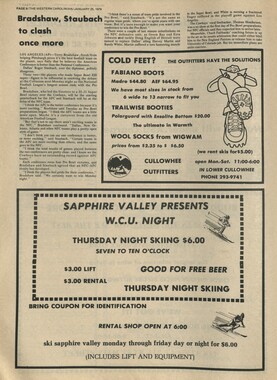Western Carolina University (20)
View all
- Canton Champion Fibre Company (2308)
- Cherokee Traditions (291)
- Civil War in Southern Appalachia (165)
- Craft Revival (1942)
- Great Smoky Mountains - A Park for America (2946)
- Highlights from Western Carolina University (430)
- Horace Kephart (941)
- Journeys Through Jackson (159)
- LGBTQIA+ Archive of Jackson County (85)
- Oral Histories of Western North Carolina (314)
- Picturing Appalachia (6873)
- Stories of Mountain Folk (413)
- Travel Western North Carolina (160)
- Western Carolina University Fine Art Museum Vitreograph Collection (129)
- Western Carolina University Herbarium (92)
- Western Carolina University: Making Memories (738)
- Western Carolina University Publications (2488)
- Western Carolina University Restricted Electronic Theses and Dissertations (146)
- Western North Carolina Regional Maps (71)
- World War II in Southern Appalachia (131)
University of North Carolina Asheville (6)
View all
- Allanstand Cottage Industries (62)
- Appalachian National Park Association (53)
- Bennett, Kelly, 1890-1974 (1463)
- Berry, Walter (76)
- Brasstown Carvers (40)
- Carver, George Washington, 1864?-1943 (26)
- Cathey, Joseph, 1803-1874 (1)
- Champion Fibre Company (233)
- Champion Paper and Fibre Company (297)
- Cherokee Indian Fair Association (16)
- Cherokee Language Program (22)
- Crowe, Amanda (40)
- Edmonston, Thomas Benton, 1842-1907 (7)
- Ensley, A. L. (Abraham Lincoln), 1865-1948 (275)
- Fromer, Irving Rhodes, 1913-1994 (70)
- George Butz (BFS 1907) (46)
- Goodrich, Frances Louisa (120)
- Grant, George Alexander, 1891-1964 (96)
- Heard, Marian Gladys (60)
- Kephart, Calvin, 1883-1969 (15)
- Kephart, Horace, 1862-1931 (313)
- Kephart, Laura, 1862-1954 (39)
- Laney, Gideon Thomas, 1889-1976 (439)
- Masa, George, 1881-1933 (61)
- McElhinney, William Julian, 1896-1953 (44)
- Niggli, Josephina, 1910-1983 (10)
- North Carolina Park Commission (105)
- Osborne, Kezia Stradley (9)
- Owens, Samuel Robert, 1918-1995 (11)
- Penland Weavers and Potters (36)
- Roberts, Vivienne (15)
- Roth, Albert, 1890-1974 (142)
- Schenck, Carl Alwin, 1868-1955 (1)
- Sherrill's Photography Studio (2565)
- Southern Highland Handicraft Guild (127)
- Southern Highlanders, Inc. (71)
- Stalcup, Jesse Bryson (46)
- Stearns, I. K. (213)
- Thompson, James Edward, 1880-1976 (226)
- United States. Indian Arts and Crafts Board (130)
- USFS (683)
- Vance, Zebulon Baird, 1830-1894 (1)
- Weaver, Zebulon, 1872-1948 (58)
- Western Carolina College (230)
- Western Carolina Teachers College (282)
- Western Carolina University (2005)
- Western Carolina University. Mountain Heritage Center (18)
- Whitman, Walt, 1819-1892 (10)
- Wilburn, Hiram Coleman, 1880-1967 (73)
- Williams, Isadora (3)
- Cain, Doreyl Ammons (0)
- Crittenden, Lorraine (0)
- Rhodes, Judy (0)
- Smith, Edward Clark (0)
- Appalachian Region, Southern (2569)
- Asheville (N.C.) (1923)
- Avery County (N.C.) (26)
- Blount County (Tenn.) (195)
- Buncombe County (N.C.) (1672)
- Cherokee County (N.C.) (283)
- Clay County (N.C.) (555)
- Graham County (N.C.) (236)
- Great Smoky Mountains National Park (N.C. and Tenn.) (519)
- Haywood County (N.C.) (3569)
- Henderson County (N.C.) (70)
- Jackson County (N.C.) (4909)
- Knox County (Tenn.) (35)
- Knoxville (Tenn.) (13)
- Lake Santeetlah (N.C.) (10)
- Macon County (N.C.) (420)
- Madison County (N.C.) (215)
- McDowell County (N.C.) (39)
- Mitchell County (N.C.) (132)
- Polk County (N.C.) (35)
- Qualla Boundary (982)
- Rutherford County (N.C.) (76)
- Swain County (N.C.) (2182)
- Transylvania County (N.C.) (270)
- Watauga County (N.C.) (12)
- Waynesville (N.C.) (86)
- Yancey County (N.C.) (72)
- Aerial Photographs (3)
- Aerial Views (60)
- Albums (books) (4)
- Articles (1)
- Artifacts (object Genre) (228)
- Bibliographies (1)
- Biography (general Genre) (2)
- Cards (information Artifacts) (38)
- Clippings (information Artifacts) (191)
- Copybooks (instructional Materials) (3)
- Crafts (art Genres) (622)
- Depictions (visual Works) (21)
- Design Drawings (1)
- Drawings (visual Works) (185)
- Envelopes (73)
- Exhibitions (events) (1)
- Facsimiles (reproductions) (1)
- Fiction (general Genre) (4)
- Financial Records (12)
- Fliers (printed Matter) (67)
- Glass Plate Negatives (381)
- Guidebooks (2)
- Internegatives (10)
- Interviews (815)
- Land Surveys (102)
- Letters (correspondence) (1013)
- Manuscripts (documents) (618)
- Maps (documents) (177)
- Memorandums (25)
- Minutes (administrative Records) (59)
- Negatives (photographs) (6090)
- Newsletters (1290)
- Newspapers (2)
- Notebooks (8)
- Occupation Currency (1)
- Paintings (visual Works) (1)
- Pen And Ink Drawings (1)
- Periodicals (193)
- Personal Narratives (10)
- Photographs (12976)
- Plans (maps) (1)
- Poetry (5)
- Portraits (4568)
- Postcards (329)
- Programs (documents) (181)
- Publications (documents) (2440)
- Questionnaires (65)
- Relief Prints (26)
- Sayings (literary Genre) (1)
- Scrapbooks (282)
- Sheet Music (2)
- Slides (photographs) (402)
- Songs (musical Compositions) (2)
- Sound Recordings (796)
- Specimens (92)
- Speeches (documents) (18)
- Tintypes (photographs) (8)
- Transcripts (322)
- Video Recordings (physical Artifacts) (23)
- Text Messages (0)
- A.L. Ensley Collection (275)
- Appalachian Industrial School Records (7)
- Appalachian National Park Association Records (336)
- Axley-Meroney Collection (2)
- Bayard Wootten Photograph Collection (20)
- Bethel Rural Community Organization Collection (7)
- Blumer Collection (5)
- C.W. Slagle Collection (20)
- Canton Area Historical Museum (2110)
- Carlos C. Campbell Collection (462)
- Cataloochee History Project (64)
- Cherokee Studies Collection (4)
- Daisy Dame Photograph Album (5)
- Daniel Boone VI Collection (1)
- Doris Ulmann Photograph Collection (112)
- Elizabeth H. Lasley Collection (1)
- Elizabeth Woolworth Szold Fleharty Collection (4)
- Frank Fry Collection (95)
- George Masa Collection (173)
- Gideon Laney Collection (452)
- Hazel Scarborough Collection (2)
- Hiram C. Wilburn Papers (28)
- Historic Photographs Collection (236)
- Horace Kephart Collection (861)
- Humbard Collection (33)
- Hunter and Weaver Families Collection (1)
- I. D. Blumenthal Collection (4)
- Isadora Williams Collection (4)
- Jesse Bryson Stalcup Collection (47)
- Jim Thompson Collection (224)
- John B. Battle Collection (7)
- John C. Campbell Folk School Records (80)
- John Parris Collection (6)
- Judaculla Rock project (2)
- Kelly Bennett Collection (1482)
- Love Family Papers (11)
- Major Wiley Parris Civil War Letters (3)
- Map Collection (12)
- McFee-Misemer Civil War Letters (34)
- Mountain Heritage Center Collection (4)
- Norburn - Robertson - Thomson Families Collection (44)
- Pauline Hood Collection (7)
- Pre-Guild Collection (2)
- Qualla Arts and Crafts Mutual Collection (12)
- R.A. Romanes Collection (681)
- Rosser H. Taylor Collection (1)
- Samuel Robert Owens Collection (94)
- Sara Madison Collection (144)
- Sherrill Studio Photo Collection (2558)
- Smoky Mountains Hiking Club Collection (616)
- Stories of Mountain Folk - Radio Programs (374)
- The Reporter, Western Carolina University (510)
- Venoy and Elizabeth Reed Collection (16)
- WCU Gender and Sexuality Oral History Project (32)
- WCU Mountain Heritage Center Oral Histories (25)
- WCU Oral History Collection - Mountain People, Mountain Lives (71)
- WCU Students Newspapers Collection (1920)
- Western North Carolina Tomorrow Black Oral History Project (69)
- William Williams Stringfield Collection (2)
- Zebulon Weaver Collection (109)
- African Americans (390)
- Appalachian Trail (35)
- Artisans (521)
- Cherokee art (84)
- Cherokee artists -- North Carolina (10)
- Cherokee language (21)
- Cherokee pottery (101)
- Cherokee women (208)
- Church buildings (189)
- Civilian Conservation Corps (U.S.) (111)
- College student newspapers and periodicals (2009)
- Dams (107)
- Dance (1023)
- Education (222)
- Floods (61)
- Folk music (1015)
- Forced removal, 1813-1903 (2)
- Forest conservation (220)
- Forests and forestry (1184)
- Gender nonconformity (4)
- Great Smoky Mountains National Park (N.C. and Tenn.) (181)
- Hunting (45)
- Landscape photography (25)
- Logging (119)
- Maps (83)
- Mines and mineral resources (8)
- North Carolina -- Maps (18)
- Paper industry (38)
- Postcards (255)
- Pottery (135)
- Railroad trains (72)
- Rural electrification -- North Carolina, Western (3)
- School integration -- Southern States (2)
- Segregation -- North Carolina, Western (5)
- Slavery (5)
- Sports (452)
- Storytelling (243)
- Waterfalls -- Great Smoky Mountains (N.C. and Tenn.) (66)
- Weaving -- Appalachian Region, Southern (280)
- Wood-carving -- Appalachian Region, Southern (328)
- World War, 1939-1945 (173)
Western Carolinian Volume 70 Number 09
Item
Item’s are ‘child’ level descriptions to ‘parent’ objects, (e.g. one page of a whole book).
-
-
16 | WCnewsmagazine The Movement then and now By Jennifer Scism + WCU Alumni Events in history are often interpreted as having specific dates of start and end. It is difficult for historians to place such strict time borders around history, particularly if the events in question are ones that encompassed more than a few moments in time. In the case of the American Civil Rights Movement, there is much debate as to when, where, and how it began. When is the important question to answer because answering when would allude to where and how. As far as the narrative goes, historians have traditionally approached the question of when by referring to the Montgomery Bus Boycott and the interjection of Dr. Martin Luther King ur, into the picture of the struggle for civil rights for African Americans. This places the start of the Movement on. December 1, 1955. However, this notion has not always been upheld as the only starting point. Many point to other events and individuals of the twentieth century. Some even say that the Movement started immediately after the Civil War because African Americans walked into the dawning of a new era in which they were free, yet constantly fighting for that freedom. Marcus Garvey was especially influential in the first few decades of the twentieth century and his ideas of "back to Arica and Black Nationalism spread to the United States quickly. He influenced African Americans including the parents of Malcolm X. Garvey's influence in the United States, began before Dr. Martin Luther King Jr., was even born and decades before the Montgomery Bus Boycott. In 1909, the National Association for the Advancement of Colored People was founded. Individuals such as W.E.B, Dubois helped found the organization that ignited many flames during nearly the entire twentieth century and into the twenty-first. Booker T. Washington, although often labeled as an accommodationist, began his work before the twentieth century even began, And even more important, millions of African Americans everywhere stood up for themselves on a daily basis. Their names may not have been lauded and they may not have been talented speakers or influential religious leaders, but they fought. In August of 1955, four months prior to Rosa Parks famous refusal in Montgomery, Chicago's streets were flooded with tears. Emmett Till's murder sent shock waves through the African American community and Americans everywhere finally realized that our nation had taken a grim turn towards evil. Fourteen-year-old Till was captured by two grown white men in Money Mississippi, and tortured to death. One of Till's eyes was gouged out, he was severely beaten, shot in the head, and was anchored to the bottom of the Tallahatchie River by a 75 pound cotton gin fan, tied to his neck with barbed wire. His funeral in Chicago engrossed thousands of people. His mother attempted to show the world, literally, just what hate and evil had done to her son. She ordered that Emmett's casket be open for the world to view his mangled body. The photos of his body were also published in Jet Magazine for the public to see. His funeral was one of the first mass meetings of people in the name of civil rights for African Americans. Even more importantly than when the Movement started, when did the Movement end? Or did it end? And where do we go from here? Some say that there is no need for the continuation of the Movement. Events like Hurricane Katrina, however, remind us that no matter how equal everything may seem, inequalities do exist. Recently | heard Angela Davis speak at the University of North Carolina at Greensboro. She explained that just because all Americans are defined as equals under the law, does not mean that they are treated as so. She also explained how racism is not like it used to be. In my opinion racism is sneakier now. The system that governs the nation is racist. We are all aware that racism has a negative connotation, so we work AN NI Na = harder to create a language that covers it up. When Kanye West spoke during the wake of Katrina, he said, President Bush does not care about Black people. Many laughed at Kanye, but some agreed. The bottom line is, Kanye's comments have a seed of truth in them. We don't know President Bush personally, but we do know him as the Executive Officer of this country. We have seen numerous occasions in wi he, and other officials, have made statements that throw up red flags. For example: when in Brazil, President Bush asked the President of Brazil, You have Blacks too?" He was then saved by Condoleezza Rice as she stated to him that Brazil has a very large African American population. This is not the first time the Secretary of State has saved Bush from attacks concerning racism. When Katrina rolled over the Gulf Coast and the fingers began to point, Rice said that the President can't possibly be racist. | guess she was referring to the fact that he picked her to be his right hand woman and was always on the good side of Colin Powell. My answer to this is: racist people can always count how many African Americans have been in their house! I don't know President Bush personally, and if am wrong | apologize, but the way | see it is, he is part of a system that uses covert language and sneaky politics to hide the reality of it al. The American government is racist and prejudice on many terms in the form of health care and welfare. The system does not work and never wil ithe people representing the population are not in accordance with the people as a whole. NAS, a rapper out of New York, puts it in words when he refers to the huge plea by African American celebrities to get Black people to vote, "you worked so hard for it, and end the end we all got dicked. He also goes on to say who you gonna elect, Satan or Satan, in the hood nothin is changin. This is another excellent point, | am tired of everyone attacking only Republicans. Democrats are just as guilty of racist and prejudice politics. Who will vote for Democrats if there is no minority poverty, or lack of gay rights, or no need for an expansion as a welfare state? The fact is, as Angela Davis pointed out, racism is so deep-seeded that even minorities hold stereotypes about themselves. For example: the Superdome was a place of controversy during the Hurricane. There were crazy reports of rape and murder from the Superdome. Everyone believed it because the media latched onto the story and created a scene of hysteria to add to the horrendous situation. And why did everybody believe it? Because, as Angela Davis noted, everyone knows what happens when you get a bunch of Black people together! What is even more sad is, the African American population believed it too when in fact, acoording to NPR and Angela Davis, there was not a single recorded incident of murder or rape from the Superdome. The NAACP and the Southern Poverty Law Center pick up new cases on a regular basis. They track hate groups and record hate crimes everyday. This is why we need a continuation of the Movement. Angela Davis said one more profound thing in her lecture at UNCG. She stated that it was senseless for the Black community to continue to think that all Black people were going to unite. She said it was a dream that will never be reality again. So if the Black community will not unite, what will happen to the Movement? The Movement needs to be an interracial and intergenerational model for change. It needs to be revamped and reignited while simultaneously fulfiling the dream that Dr. King talked about: all people, working together as one to Create what the system wants us to think already = y
Object
Object’s are ‘parent’ level descriptions to ‘children’ items, (e.g. a book with pages).
-
The Western Carolinian is Western Carolina University's student-run newspaper. The paper was published as the Cullowhee Yodel from 1924 to 1931 before changing its name to The Western Carolinian in 1933.
-
